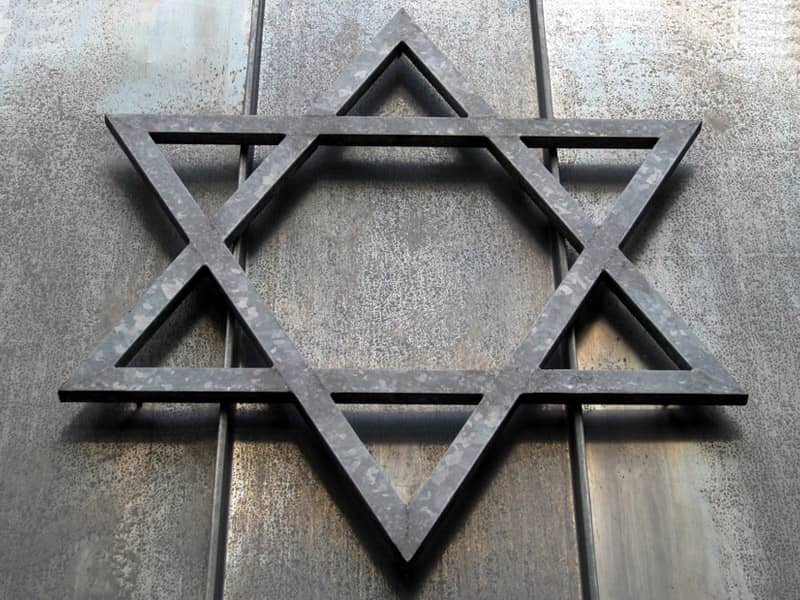DRESDEN, Germany (AP) - In a celebration of resurgent Jewish life in the German city of Dresden, a new synagogue was inaugurated Friday in the same spot where another was burned down by the Nazis exactly 63 years ago. But the event came with the warning that anti-Semitism is on the rise.
"Despite everything that has happened, there's Jewish life here again," Paul Spiegel, the president of Germany's Central Council of Jews, said after the opening of the modern, cube-like building. "But whether there will be Jewish life here in future doesn't just depend on Jews, it depends on non-Jews."
The synagogue is the first to be built from the ground up in eastern Germany since World War II. It's seen as a stylistic departure from its predecessor, built in 1838 and one of more than 1,300 synagogues destroyed by Nazis on Kristallnacht, the Night of Broken Glass, on Nov. 9, 1938.
"Rebuilding the old synagogue was out of the question for us," Roman Koenig, the head of Dresden's Jewish community, told about 200 people at the dedication ceremony--among them U.S. Ambassador Dan Coats, as well as Lutheran and Roman Catholic bishops. "The violent interruption of the Jewish community's history had to be visible."
Only one remnant remains of the old synagogue: a golden star of David, installed over the entrance of the new building. The star was saved by Dresden firefighter Alfred Neugebauer, who hid it in his attic until the war ended and then returned it to the Jewish community.
The burning synagogue "was sealed off by (Nazi) SA officers and the police were there, too, to make sure the firefighters didn't do their job," Neugebauer told ZDF television. The Jewish community was later forced to pay to have ruins cleared.
The dedication ceremony highlighted the mixed feelings aroused by twin anniversaries that fall on Nov. 9--Kristallnacht and the fall of the Berlin Wall, in 1938 and 1989, respectively. The events encapsulate high and low points in German history.
"Ten or 12 years ago none of us would have dreamed that there would be a living Jewish community in Dresden," Spiegel said. Since the end of the Cold War, the reunited Germany has accepted tens of thousands of Jewish immigrants from the former Soviet Union as part of a program to right historical wrongs and breathe life into the Jewish community.
Numbering 30,000 just a decade ago, Germany's Jewish population is quickly approaching 100,000.
Dresden's Jewish community, 5,000 strong when the Nazis took power in 1933, was nearly wiped out in the Holocaust. It dwindled further under communist rule in postwar East Germany, dropping to about 160. Now, Koenig said, it numbers nearly 400.
But the years since reunification haven't brought only good news.
Germany last year recorded its highest number of far-right offenses since World War II, surging nearly 60 percent from 1999. Violent crimes with a far-right, anti-Semitic or anti-foreigner motivation--ranging from robbery to murder--jumped by 34 percent.
"The fact that there are Jews here again is proof that people have trust in this democracy," Spiegel said. "I hope this trust is justified."

